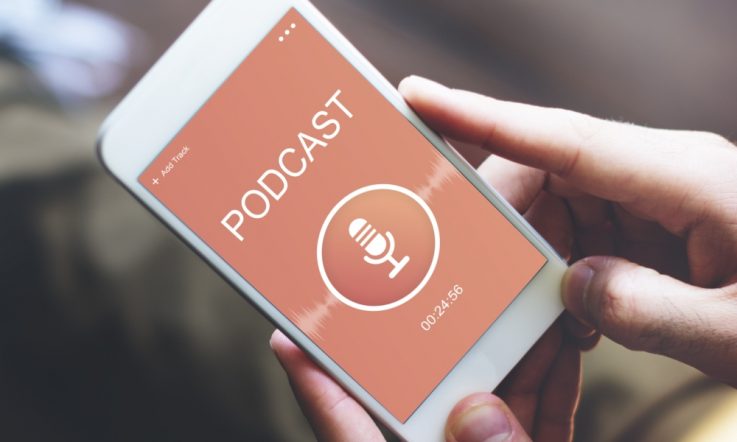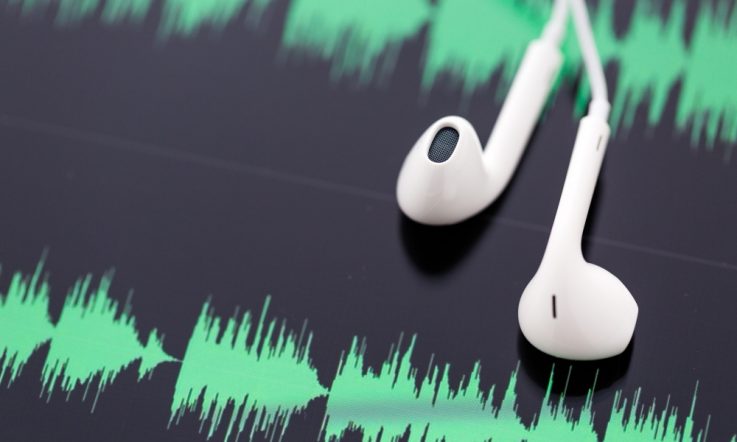Jo Earp: You're listening to a special Teacher podcast. I'm Jo Earp and I'm joined today by Rebecca Vukovic and Dominique Russell. Today we're celebrating Teacher's 100th podcast by taking a closer look at some of our audio highlights over the last four years.
Rebecca Vukovic: We know our listeners love our podcasts – they've had over 160 000 downloads since we first started! As most of you will know, we produce episodes in six different series: The Research Files, Teaching Methods, Action Research, Global Education, School Improvement and Behaviour Management.
Dominique Russell: So throughout this special episode, we'll be showcasing some highlights from the first episode in each of our podcast series. Stay tuned as we hear more from John Fleming, Dr Bill Rogers and more! But first, we marked the 100 milestone with a visit to our Founding Partner.
Jo Earp: Hello, I'm Jo from Teacher and I'm here today with Bank First CEO William Wolke.
William Wolke: Hello, Jo.
JE: Now it may be our 100th podcast today but we'll never forget how it all started and Bank First have been with us from the very beginning.
WW: That's right, Jo. And we're very proud to be the Founding Partner of Teacher magazine. As a bank we were founded in 1972 for teachers, and that's still our purpose today – to financially empower teachers to realise their dreams. We do that through our award-winning product range, our customer service and financial literacy.
JE: And it's right there in your name, isn't it? Bank First. Customers are clearly your core focus, William. Where can readers and listeners find out more information about your services?
WW: Yeah it's absolutely correct that customers are our focus because we are a customer owned bank which means that that's our purpose. And people can learn more about us by going to bankfirst.com.au.
JE: It's been fantastic to have your support.
WW: It's been a pleasure, Jo. Thank you for having me and congratulations on your 100th podcast.
JE: William Wolke there, Bank First CEO. Okay, onto the episode highlights. The first clip we'd like to play for you comes from the Research Files and it's in fact our first ever podcast – it's an interview with Dr Brendon Hyndman from the University of Western Sydney. He joined me to chat about his research study which compared movable recycled materials in the playground versus a traditional fixed playground. In this clip, he's explaining some of the comparisons between the two environments, focusing on the children who played with recycled materials.
Brendon Hyndman: There were a range of social effects as well: children were seen to be negotiating items with other children, which is quite a higher order thinking skill; they were modelling behaviour on others, so they could actually see how children were playing with some of the equipment and then being able to join in (so it was a lot more inclusive, they were able to see how children used some of the equipment); and they were really working together, using teamwork skills and creating these different objects and structures and stations to play around in the school playground.
RV: This next clip comes from our most popular podcast episode and the first in our Teaching Methods series. It's John Fleming talking about the use of Explicit Instruction. In this clip, he's talking about what he thinks makes a good teacher.
John Fleming: Also I think good teachers have a really outstanding relationship with their kids, so they make learning fun. They involve their kids in their learning, they contextualise kids' learning so that the kids know ‘this is what I'm learning, this is why I'm learning it, this is how I can use it'. And, also, they understand the importance of teaching kids how to problem solve and use it. Because modern education is not just about giving kids skills here, skills there – it's about actually explaining to kids 'This is why you're learning this skill, this is how you can use this skill, this is how you can use it in problem-solving', developing self-talk amongst kids so they can actually talk their way through problems and issues.
DR: This next clip comes from Karen Endicott, a New South Wales principal who led a series of changes aimed at building staff and student capacity at her school. In this clip from our first ever School Improvement episode, she's telling listeners about how she went about developing her school improvement plan.
Karen Endicott: I identified eight key factors that you needed to look at. You need to look at the culture, you need to analyse the values of the school, you need to look at what the people's beliefs about teaching and learning are so then you can start building on the quality instruction and the programs, you can start building on the leadership team. You have to identify the capacity of your staff, because it's sometimes some of the school leaders that are part of the culture can actually hinder the changes that you want to make because they've been quite happy where they are.
JE: All those clips there are from 2014. Our Global Education series was first introduced in early 2015, with an episode featuring Dr Paul Browning, a Brisbane school principal. He joined Teacher to talk about his school's Futures Planning Project. In this clip, he's talking about identifying influences that shape the scenarios the project focused on.
Paul Browning: For us, employment is a big one – the whole global economy is shifting at the moment, work is changing, the whole nature of work is changing. ... Is a university degree going to be relevant in the future? Who knows. ... What are we preparing children for? What skills do they need when they leave the school to actually enter the workforce and make a meaningful contribution? Technology was the other one [and it's] a significant influencer as well. We don't know what's going to happen there. As we were doing research we were discovering things like commentary on the fact that there could well be a brain implant, in the not too distant future, where you could be connected to the internet just through thought. There could be facility for people to download Shakespeare directly into your brain – quite scary stuff but there is a lot of evidence out there to suggest that technology is already there and being developed.
RV: Our Action Research podcast series launched at the beginning of 2016 with an episode featuring Mark Sivills from Don College in Tasmania. He joined us to discuss his school's peer assessment initiative, which resulted in improved outcomes in Year 11 and 12 Foundation Mathematics. In this highlight, Mark shares some advice for other teachers looking to conduct action research in their schools.
Mark Sivills: The biggest piece of advice probably, is try to create a simple question that you want to answer. I think ours was probably still a bit too complex but it was basically, ‘Can students in Foundation maths who have only ever achieved 'Ds' before engage in peer and self-assessment? And, does it lead to improved outcomes?' And we were able to answer those questions, 'yes' and 'yes'.
DR: As always, we love to hear from Teacher readers and listeners about the topics and issues you'd like more support on, and behaviour management is always near to the top of the list. Our first episode in the Behaviour Management podcast series also happens to be one of our most popular. It's clear that listeners can't get enough of Dr Bill Rogers' advice on starting off the school year. In this clip, he's talking about why it's important to be explicit about the rights and responsibilities in your classroom.
Bill Rogers: It is important to make it explicit, even with secondary students, to explicitly explore with them in that critical first meeting what the right to feel safe involves. In a sense, the right to feel safe and the right to learn and the right to fundamental respect and fair treatment, those rights are not negotiable. You don't begin the year by saying to older children or even upper primary children ‘What rights do you think you have?'. You begin by coming from those rights and discussing within those rights what a safe environment looks, sounds and feels like; what a respectful environment looks, sounds and feels like; and what it feels and sounds like to have a learning environment where we support one another – and that includes everything from noise level to reasonable sharing during class discussion and even allowing healthy disagreement.
RV: That was such a great podcast and one of my personal favourites. I want to remind listeners that these are just a sample of some of the podcasts we've done over the last few years, but all Teacher podcasts can be found at our website teachermagazine.com.au.
DR: And remember you can also download all of our podcasts for free, just visit acer.ac/teacheritunes or head to soundcloud.com/teacher-acer.
JE: Finally, thanks to you for listening. We've loved bringing you the first 100 podcasts, here's to the next 100.
Which have been your favourite Teacher podcasts of the last four years? Share your views by commenting below.
Teacher magazine produces episodes in six different series. Which series is your favourite? What topics would you like to hear more on?



